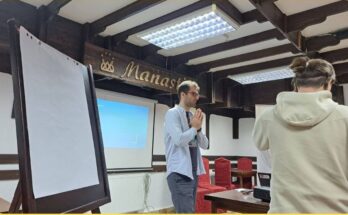Key points:
- The Hungarian-Polish veto unnecessarily delayed the MFF 2021-2027, the NGEU and the Own resources decision, highlighting the problems of intergovernmentalism.
- The compromise over the rule of law conditionality is based on non-binding commitments that shouldn’t inhibit the application of the relevant regulation to protect the EU’s fundamental values and financial interests.
- The EUCO’s approach to fighting the COVID19 pandemic is welcome but needs to be followed by the development of a genuine Health Union.
- The 55% climate target is an important yet insufficiently decisive step; however, the actual implementation of the goal is what matters.
Brussels, 14.12.2020
“The ridiculous veto-show run by the Hungarian and Polish governments in the Council is finally over. At last, the other institutions can go back to work to ensure Europeans don’t have to worry about EU budget cuts over winter holidays”, says JEF Europe President Leonie Martin. Apart from the delays in adopting the Multiannual Financial Framework (MFF), the “Next Generation EU” Recovery Package (NGEU) and the EU’s own resources decision, the main victim of this process is the rule of law conditionality mechanism which was seemingly made dependent on several factors.
As a non-binding document, the December European Council Conclusions should not inhibit the application of the conditionality mechanism by the European Commission, including in the case of generalised rule of law deficiencies which even indirectly affect the financial interests of the Union. We urge the Parliament and the Council to promptly adopt the conditionality regulation without any changes that would weaken its capacity to protect the EU’s fundamental values and financial interests.
“Hopefully, the other victims of the unanimity principle in the Council – the MFF, the NGEU and the decision on EU’s own resources – can be adopted without delay after the European Council. It is crucial that Europeans can count on the Union to make investments over the 2021-2027 period in such key areas as environment, public health, economic recovery, education and others. At the same time, the EU needs to generate its own funds from diverse sources and move towards a Fiscal Union that would serve citizens better without over-reliance on national contributions and endless vetoes. We urge the Member States to ratify the Own resources decision as soon as possible following the opinion of the European Parliament.” explains Martin.
The endorsement of the increase of the 2030 greenhouse gas reduction target to 55 percent is a step in the right direction. However, this level will still be insufficient to meet the Paris Agreement obligations and the Council will have to find a common ground with the Parliament that had stood up for a 60 percent target. Nonetheless, far from being overly attached to symbolic numbers, we urge the EU, all Member States and citizens to take genuine action towards lowering our impact on our planet.
Finally, the commitment of the European Council to a pan-European approach in fighting the COVID19 pandemic and the recognition of vaccination as a ‘global public good’ is a welcome attitude. It is important, however, to move beyond this crisis response and grant the EU a stronger competence in the field of health to make Europe more resilient to potential health crises in the future.
We would like to believe that after the MFF veto farce the EU has been shaken enough to come to its senses and drop its irrational attachment to intergovernmentalism. While the Council may not have learnt its lessons, we believe the citizens have started to understand the inefficiencies of the unanimity principle. It will be our task to build on this sentiment throughout the upcoming Conference on the Future of Europe, demanding the changes we need to make the EU more united, democratic and simply effective.
Background
The European Council held between 10-11 December 2020 adopted conclusions concerning the Multiannual Financial Framework (MFF) 2021-2027, the “Next Generation EU” Recovery Package (NGEU), the EU’s own resources, the rule of law conditionality, COVID19 vaccinations, climate crisis, internal security and external relations. A compromise on the mechanism rendering the distribution of EU funds conditional on the respect for the Union’s fundamental values led to the lifting of the Hungarian-Polish veto on the MFF accompanied by the NGEU and an own resources package. The European Council also endorsed the climate target of reducing the greenhouse gas emissions until 2030 by 55 percent compared to the 1990 levels, and called for a coordinated EU effort to mitigate the COVID19 pandemic.
About JEF Europe
The Young European Federalists (JEF) Europe is a non-partisan youth NGO with 10,000 members active in over 30 countries. The organisation strives towards a federal Europe based on the principles of democracy and subsidiarity as well as respect for human rights. JEF promotes true European Citizenship, and works towards more active participation of young people in democratic life. While the umbrella organisation JEF Europe was founded in 1972, its sections have been operating continuously since the end of the Second World War, making it the oldest pro-European and only federalist youth organisation.
JEF on similar topics
- 13.11.2020 Positive EU budget compromise feels the effect of the EU’s intergovernmental decision-making procedure
- 8.10.2020 Environment doesn’t stop at borders: The fight against the climate crisis is a federalist one
- 17.09.2020 State of the European Union: Fixing the symptoms, neglecting the root-cause
- 16.09.2020 JEF Europe calls for an ambitious agreement on own resources for the EU
Contact Information
Leonie Martin
President
Young European Federalists
Rue d’Arlon 53
1040 Brussels
leonie.martin@jef.eu




